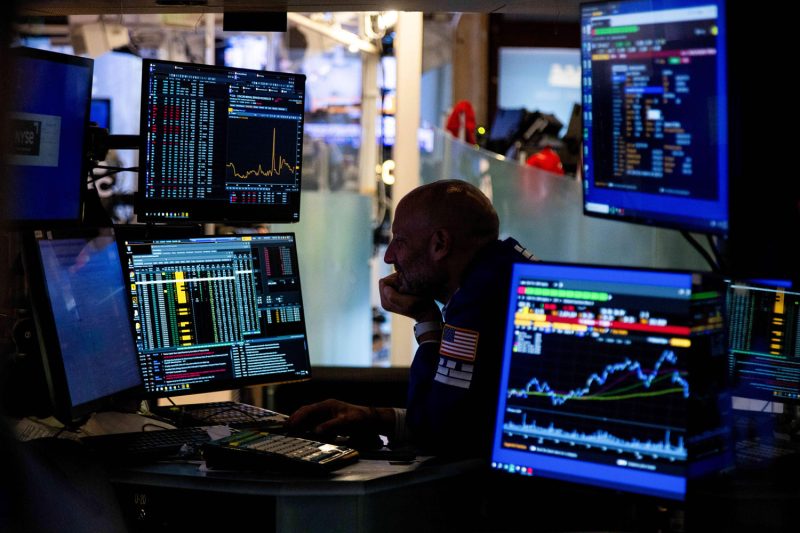Major U.S. stock indexes experienced a significant downturn on Thursday, culminating in the Dow Jones Industrial Average closing nearly 500 points lower. This substantial drop coincided with growing concerns amongst investors regarding the possibility of an impending recession. The sharp decline in the stock market served as a wake-up call to many investors, prompting a reevaluation of their investment strategies and risk management practices.
Various factors contributed to the decline in market performance, including uncertainties surrounding global trade tensions, slowing economic growth, and the inverted yield curve phenomenon. The ongoing trade dispute between the United States and China has cast a shadow of uncertainty over the global economy, prompting fears of a potential slowdown in economic activity. Additionally, recent economic data indicating a deceleration in growth further fueled concerns about the health of the economy.
The inverted yield curve, a phenomenon wherein short-term interest rates exceed long-term rates, has historically been regarded as a reliable indicator of an impending recession. The inversion of the yield curve has drawn considerable attention from investors and analysts alike, sparking fears of an economic downturn in the near future. The inversion of the yield curve, coupled with other economic indicators pointing towards a potential recession, has amplified concerns among investors and led to a sell-off in the stock market.
Investors reacted swiftly to the prevailing economic uncertainties, with many opting to reduce their exposure to equities and seek refuge in safer assets such as bonds and gold. The flight to safety resulted in a surge in demand for government bonds, driving down yields on Treasury securities. Gold, traditionally regarded as a safe-haven asset during times of economic turmoil, saw a notable increase in value as investors sought to hedge against market volatility.
Despite the challenging economic landscape, analysts remain cautiously optimistic about the future trajectory of the market. While the recent market volatility and economic uncertainties have undoubtedly rattled investors, experts emphasize the importance of remaining calm and maintaining a long-term perspective. Diversification, prudent risk management, and staying informed about market developments are crucial aspects of navigating turbulent market conditions.
As investors grapple with the prospect of a potential recession, it is essential to approach investment decisions with a level head and a strategic mindset. While market fluctuations are an inevitable part of the investment landscape, adopting a disciplined approach to investing can help safeguard portfolios against unexpected downturns. By staying informed, diversifying investments, and adhering to a sound investment strategy, investors can weather market turbulence and position themselves for long-term financial success.




























